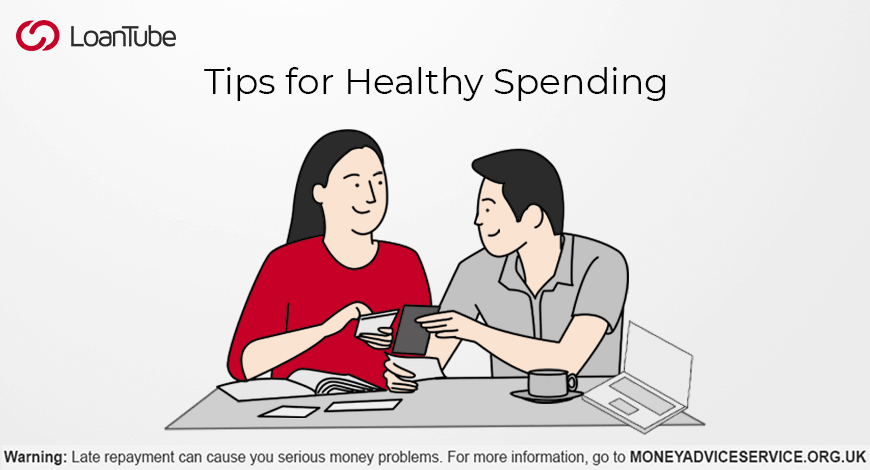How well do you manage your personal finance? Do you stick to your budget? Here are a few tips for spending cautiously during COVID-19. ⭐Financial Tips ⭐Money Management
The Coronavirus disease is strengthening it’s grip on the world, causing a global panic. This pandemic has brought nations to a halt. Economies are bearing a huge loss due to global lockdown. Consequently, people are unable to run businesses and millions have lost their jobs, owing to this outbreak. The UK government has laid out multiple plans to help citizens sustain this catastrophe. However, controlling how you spend your money is in your hands. Therefore, we have highlighted some tips for you to use your money effectively, because you can’t avert the pandemic, but you can minimize the damage.
Maximise your options: Compare and apply for loans below with LoanTube
Apply Filters

Loan Amount
£4000 -
£20000
Norwich Trust
Loan Term
1 -
10 years
4.8/5
Representative APR
22.9%
Minimum Age
21 Years
Representative Example If you borrow £20000 over 72 months, your representative APR will be 22.90% APR. Your monthly repayments will be £488.36 and the total amount repayable will be £35,161.92.

4.8/5
Norwich Trust
Loan Amount
£4000 -
£20000
Loan Term
1 -
10 years
Representative APR
22.9%
Minimum Age
21 Years
Minimum Income
£2000 per month
Representative Example If you borrow £20000 over 72 months, your representative APR will be 22.90% APR. Your monthly repayments will be £488.36 and the total amount repayable will be £35,161.92.

Loan Amount
£5000 -
£100000
Evolution Money Loans
Loan Term
1 -
20 years
4.5/5
Representative APR
28.96%
Minimum Age
18 years
Representative Example: Loan Amount: £20950.00, Loan Term: 85 Months, Interest Rate: 23.00% PA Variable. Monthly Repayments: £537.44. Total Amount Repayable: £45,682.15. This example includes a Product Fee of £2,095.00 (10% of the loan amount) and a Lending Fee of £714.00

4.5/5
Evolution Money Loans
Loan Amount
£5000 -
£100000
Loan Term
1 -
20 years
Representative APR
28.96%
Minimum Age
18 years
Minimum Income
Not mentioned
Representative Example: Loan Amount: £20950.00, Loan Term: 85 Months, Interest Rate: 23.00% PA Variable. Monthly Repayments: £537.44. Total Amount Repayable: £45,682.15. This example includes a Product Fee of £2,095.00 (10% of the loan amount) and a Lending Fee of £714.00

Loan Amount
£1000 -
£10000
1Plus1 Guarantor Loans
Loan Term
1 -
5 years
4.4/5
Representative APR
47.80%
Minimum Age
18 years
Representative example: If you borrow £3000 over 36 months at a Representative rate of 47.8% APR and an annual interest rate of 39.7%, you would pay 12 monthly installments of £143.84. The total charge for credit will be £2178.24 and the total amount payable will be £5178.24.

4.4/5
1Plus1 Guarantor Loans
Loan Amount
£1000 -
£10000
Loan Term
1 -
5 years
Representative APR
47.80%
Minimum Age
18 years
Minimum Income
Not mentioned
Representative example: If you borrow £3000 over 36 months at a Representative rate of 47.8% APR and an annual interest rate of 39.7%, you would pay 12 monthly installments of £143.84. The total charge for credit will be £2178.24 and the total amount payable will be £5178.24.
First Things First – Stay Informed and Save!
As per reports, the average weekly expenditure of a UK household is approximately £585.60, in which travel, recreation and culture account for 44% of the total. An average UK tourist spends approximately £661 on their holiday, the countrywide total amounting to £48 billion for the year 2019. These figures saw an increment of 6%, compared to 2018. With these insights, we can conclude that the only silver lining of this pandemic is that we are saving money on the leisure expenditure that we were so used to. While these are some factors that we can control, there are a bunch of things that are being done for our welfare. Take a look below to see what you can do, and check what you’ve already done:
#1 Keep yourself informed about Payment Holidays and Policy Refunds
If you haven’t yet, consult with your bank or lender and discuss your financial situation. Seek help before you run behind your payment so that your lender doesn’t get the wrong impression. If you are not using your car due to the pandemic, you can apply for a Statutory Off Road Notification (SORN). If your application is approved, you won’t need to buy insurance for your vehicle. However, bear in mind that you also won’t be able to drive use your car, even for small trips to the grocery store as it is no longer insured.
#2 Know about Tax Discounts
The government announced a £500m Hardship fund to aid those in need. As per this plan, the council is expected to use this money to slash bills of eligible citizens, by £150 a year. People who pay less than £150, may not need to pay Council tax altogether. This scheme is anticipated to help 2.3 million citizens struggling to make tax payments.
#3 When it Comes to Bills, It’s Okay to Seek Help
A number of energy providers are helping customers on a case by case basis. Your energy provider may be able to give you either a payment holiday or clear your debt charges. As for customers with ‘pre-paid’ plans, the government announced that energy companies should keep them connected as it is not practical for people to step out just to recharge their meters.
#4 Save What you can on TV and Broadband Subscriptions
Broadband provider BT has given its customers unlimited home internet usage. They are also allowing customers to claim the cost of two months of subscription on BT Sport. Another telecom giant, Sky, is allowing people subscribed to Sky Sports TV, to pause their subscription. Customers can, however, continue watching these channels even with the subscription on hold. ‘Talk Talk’ is allowing people to benefit from both Sky and BT’s relief plans. So you can pause subscriptions or payments and save on those pounds.
A lot of mobile companies are also lending a helping hand to their customers. Vodafone, Three, EE and O2 have declared zero-rated data and calls to NHS services. With roughly 1.2 Million citizens that have told to isolate owing to their vulnerability to the disease. Vodafone and EE are offering a generous amount of data and calls. Vulnerable can also register for free regular deliveries of essentials. Money saved through these unconventional sources can collectively generate enough to keep you at par.
Now Comes the Budget during COVID-19
After having saved those extra pounds, it is time to lay out a plan to effectively spend this money only where it is necessary. Following are some tips you can use to manage your finances more constructively:
#5 Technology to the Rescue
There are a plethora of digital means available for you to create a budget and track your expenditure. You can these mobile/desktop apps to track your daily spending, as they fetch information directly from your bank account using ‘open banking’. Some of these applications also help you set a weekly or monthly allowing you to put a cap it at a certain amount. Money Dashboard, Bean, Emma, Wally, Yolt and Cleo are some popular applications that serve the purpose.
#6 If you’re More Old-school…
You can never go wrong with the traditional ‘envelope’ budgeting. Count your savings and income and allot an envelope to each essential expenditure. Now keep adding money as and when required. For who is not very tech-savvy, this is a good way to organize your bills as well as money.
#7 Subject all your Bills to Careful Scrutiny
Human beings are bound to make mistakes, and so are machines. It is a known fact that companies can sometimes send a faulty bill to your doorstep. Don’t let their miscalculation burn a hole in your pocket. Pay careful attention to all your bills before making payments.
#8 Save your Receipts
Either keep a track through a payment app or ask for hard copies at the till. Keeping a record of all your receipts is an essential step in tracking your expenditure.
#9 For Services that you can’t Use
With the implementation of the nationwide lockdown, it is likely that you will have to give up on some of your services. A good example would be the monthly charge for your bike’s parking spot at work or your gym subscription. It is, therefore, important to cancel all unnecessary subscriptions for services that you are not currently using.
#10 Create a Separate Account for Budgeting
If you find it difficult to manage savings and bill payments with a single account, open a new savings account dedicated to bill payments. This will make it easier for you to track your savings while using an organised approach to pay bills in full and on time. This method will give you a realistic idea of how much you should spend in the month keeping your savings in mind. It is important that you understand your average monthly expenditure to set aside a fixed amount. After doing this, you can set up a standing order to transfer money from the main account to the other savings account. This will help you in staying ahead of your bills and sticking to your budget.
The Coronavirus outbreak is deadly as it is, do not let your mental health take a toll due to stress. In these crucial times, it is important to have a positive outlook towards things. Use this time to save and re-evaluate your financial priorities. Since the leisure and recreational expenditure has dropped due to the pandemic, it is highly likely that you may end up saving more money than usual. Keeping the money that you would normally spend aside and saving it for a rainy day, is a good start. This will help you look forward to things you could do once the lockdown is lifted. A financial imbalance is one of the major causes of stress among people during this pandemic. Thus, the key to survival is cutting down on unnecessary expenditure and saving as much money as you can.
These are unprecedented times, and the best way to survive this rough patch is by fully utilising all resources made available by the government. However, this pandemic will surely compel people to re-examine some financial decisions.


